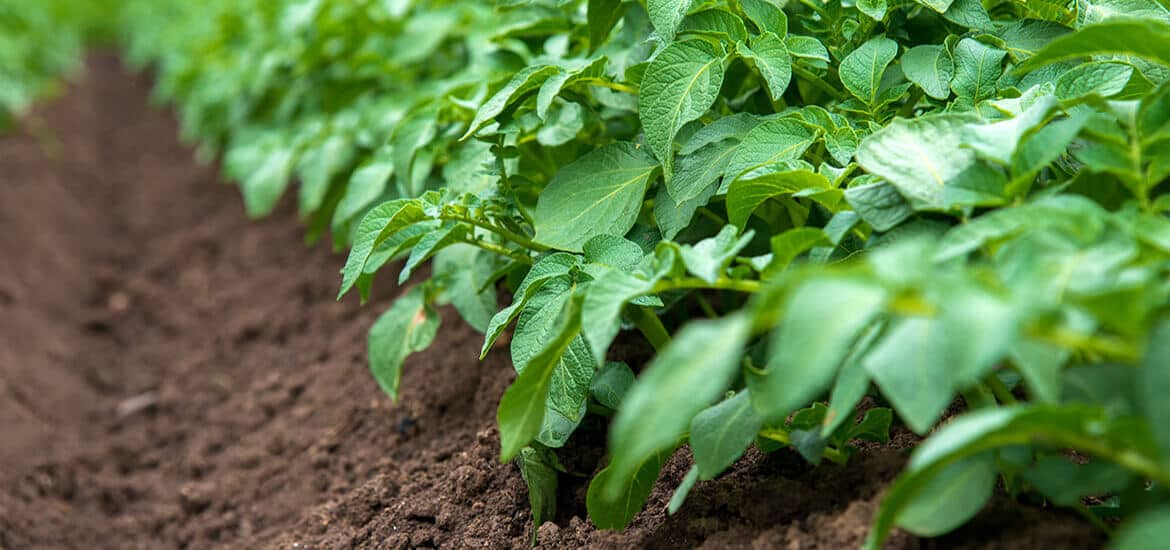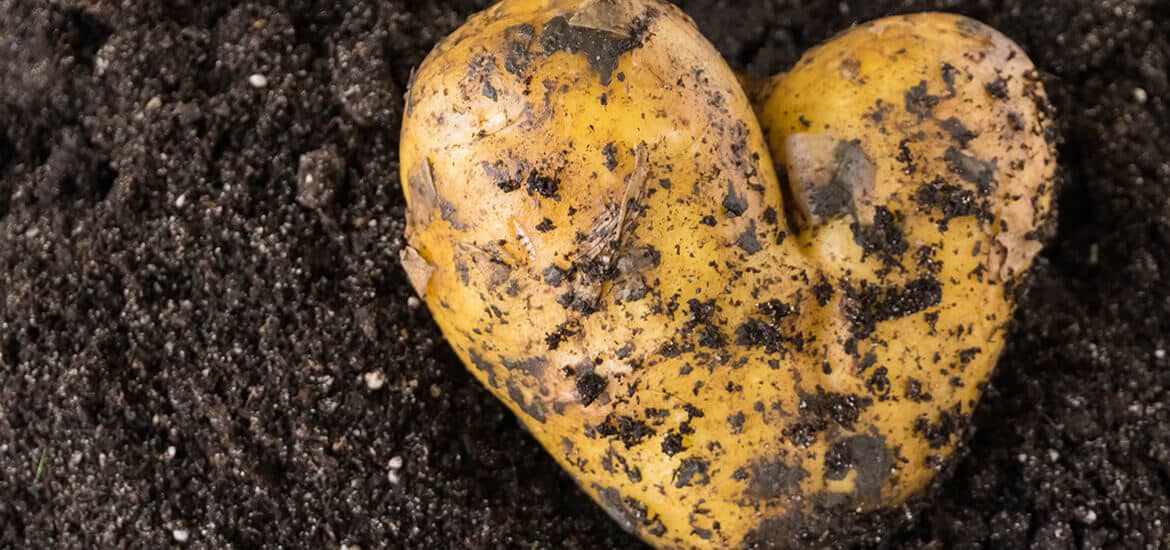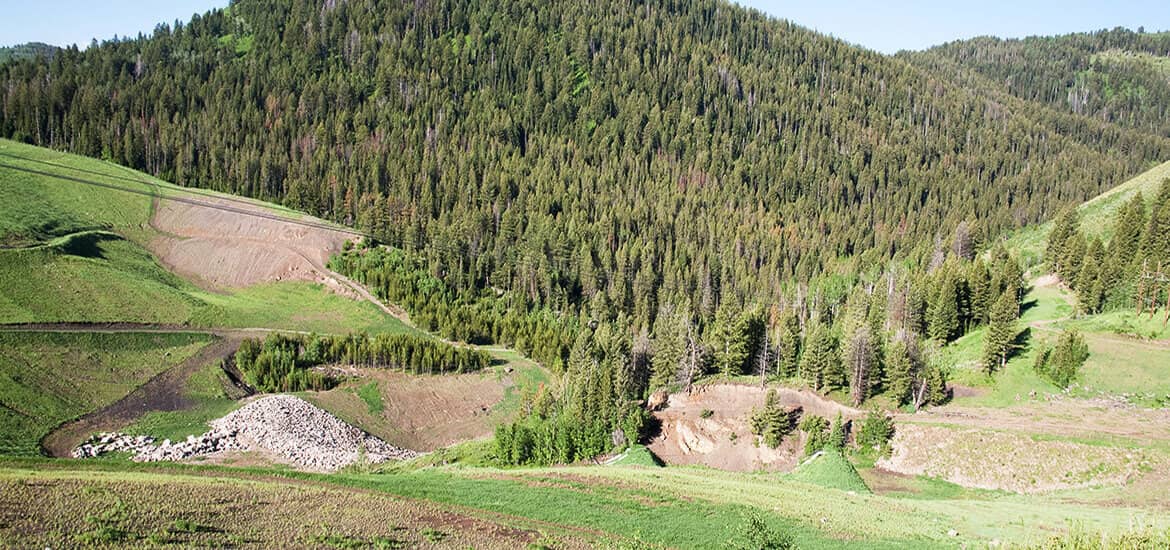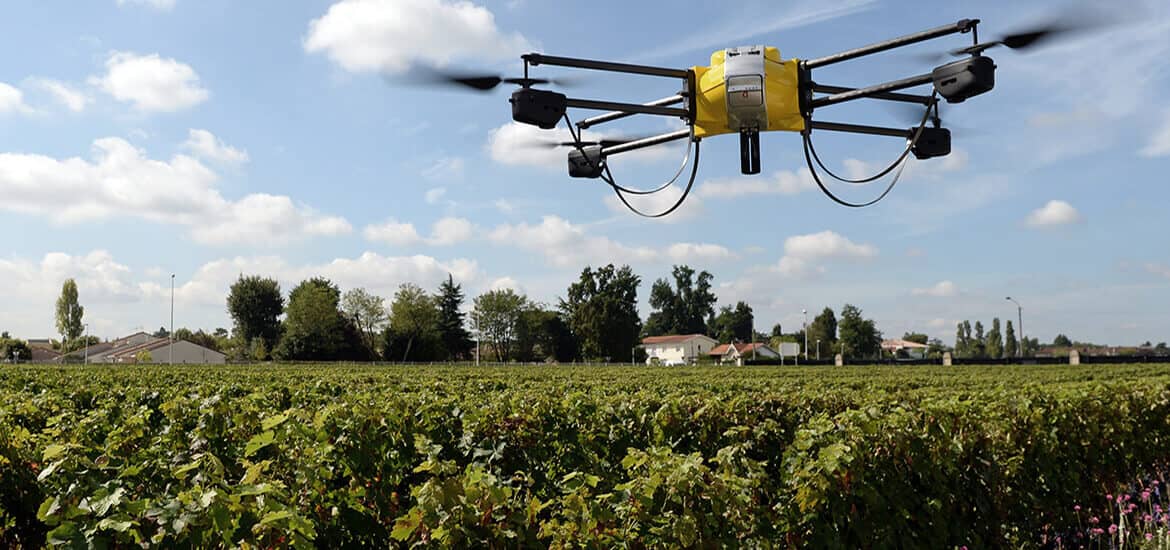Land
Taking care of the land that takes care of us.
Sustainable Practices, from the Ground Up
At Simplot, being good stewards of the land is more than the core of our business – it’s simply the right thing to do. Sustainable land use and conservation of natural resources are critical to meeting the global food needs for today's growing population and for future generations.
Our story begins with soil health and nutrient stewardship: caring for the lands that feed us. As a company founded on potato production, we continually strive to find new ways of growing better food. Whether we use the land for agriculture or mining, we take enhanced measures for reclamation and conservation as we work.
Soil Health and Nutrient Stewardship
We commit to investing in soil health research and nutrient stewardship to help growers use fertilizer and water resources more efficiently.
Advance Best Practices through 4Rs Nutrient Stewardship
Simplot supports and participates in the . This program promotes best practices for minimizing nutrient loss in soil and aims to improve efficiencies while enhancing environmental protection and sustainability efforts. It’s an approach that encourages the use of the right fertilizer source, at the right rate, at the right time, and in the right place.
The 4Rs framework helps us maximize production while respecting our resources. For example, the Simplot Grandview Farm in Washington’s Columbia River Basin has shown that current nutrient applications are at least 15% more efficient than 10 years ago, with improved yield and quality. We are proud to be recognized as a .
Build Soil Health Research Partnerships
Through collaboration with other industry leaders, Simplot helped establish a in soil health for potato cropping systems at Washington State University. This position will direct research into healthier, more productive soils for the potato industry, addressing the need for more understanding of how microorganisms and physical properties of the soil affect potato health, quality and yields.
Simplot is also involved with the Potato Soil Health Project through a Specialty Crop Research Initiative (SCRI) grant with the University of Minnesota. The overall objectives of the project are to determine how best to measure soil health in potato cropping systems, identify the tools (cover crops, soil amendments, rotation schemes) that best enhance both soil health and tuber production, and communicate the findings to potato growers.
Potato Sustainability
We continuously strive to improve potato sustainability through agronomic, soil health, and a variety of research and best practice implementation.
Innovate New Potato Varieties for the Environment
We invest in potato research and development to minimize disease, improve yields, reduce pesticides, enhance safety and provide more environmental sustainability. One way we are doing this is through our variety research and development, including . Innate potatoes provide significant sustainability advantages for the potato industry through enhanced traits such as reduced blackspot bruise, meaning fewer potatoes are rejected by packers, processors and consumers leading to less waste. With a reduction in blackspot bruise defects, fewer resources can be used to achieve the same yield, which means farmers generate fewer CO2 emissions while using less water and pesticides. Our conventional variety research and development also looks for the best tasting, most efficient and resilient potato our customers expect.
Partner in the Potato Sustainability Alliance (PSA)
Simplot is a founding member of the , which takes a full value-chain approach to sustainability in partnership with over 600 growers, while fostering collaboration and innovation within the industry. PSA implements an on-farm sustainability framework, which addresses sustainability issues that can be resolved by growers independently on the farm. PSA also develops a Sustainability Assessment tool that measures greenhouse gas emissions, irrigation efficiency, water quality, soil health, integrated pest management and farmer prosperity.
According to the PSA, “When you eat a sustainable potato, you are supporting a farmer and an entire community that embraces their commitment to care for the environment.”
Land Reclamation
As a vertically integrated company, Simplot has a part in every aspect of food production, from the mine that gives us phosphate ore used to produce fertilizer for our crops to the food on your dinner plate. We will continue to invest in the study, technologies and best practices for land restoration and reclamation.
Integrate Concurrent ‚ÄØReclamation
Land is reclaimed concurrent with the mining process: as one area is actively mined, the previously mined area is reclaimed. Reclaiming mined land with the required mitigations, salvaged topsoil and native plants aligns with our Simplot Core Value of Respect for Resources. We are determined to return our public lands to functioning habitat as soon as possible for local wildlife and future recreational opportunities. We contribute information to the annual sustainability report for our industry: .
Monitor and Manage for Reclamation Success at Smoky Canyon
At our Smoky Canyon mine, Simplot follows strict, site-specific approval requirements set by U.S. Federal government agencies such as the Bureau of Land Management and the U.S. Forest Service. These agencies require Simplot to reclaim mining areas as we go, placing protective soil covers and planting vegetation. We also mitigate land disturbance by enhancing habitat areas in and around the mine site. Beyond those baseline regulatory requirements, Simplot conducts additional work to make sure that the soil and vegetation cover systems work to reclaim the land as planned, implementing detailed environmental surveys and a robust monitoring program during and after mining. This process helps address and reduce potential risks to important resources such as wildlife, fisheries, habitat, and ground and surface water.
Restore the Yankee Fork of the Salmon River – for Fish and for History
In 2017, representatives from the ŒÞ”«∂à ”∆µ and other organizations received the U.S. Forest Service’s highest honor – the Chiefs Honor Award. The award recognizes a five-year collaborative effort to restore the waterways and fish habitats on the Yankee Fork of the Salmon River in eastern Idaho. We’ve also worked to address impacts from historic mining practices and were recognized by the U.S. Forest Service.
Conservation Agriculture
Our goal: Embrace innovations for improved, more sustainable beef and crop production.
Partner in the U.S. Roundtable for Sustainable Beef
Simplot is proud to be a member of the .
Promote Cover Crops and Provide for Pollinators
Simplot is a member of the Conservation Technology Information Center (CTIC). The CTIC works with a tool called OpTIS (Operational Tillage Information System) that uses satellite imagery to survey conservation tillage and cover crop utilization. This information allows us to see how cover crops are being used in the field.
Encourage Climate Learning and Resilience
As members of the , we celebrate its multi-stakeholder, scientific approach to providing an industry platform for sustainable agriculture metrics and use. By providing a common platform, growers anywhere in the world can learn more about their part in the planet’s climate. As a company that touches every part of the agriculture and food supply, Simplot is uniquely positioned to act where it matters most. We joined the Cool Farm Alliance to help quantify and focus those points of action over time.








